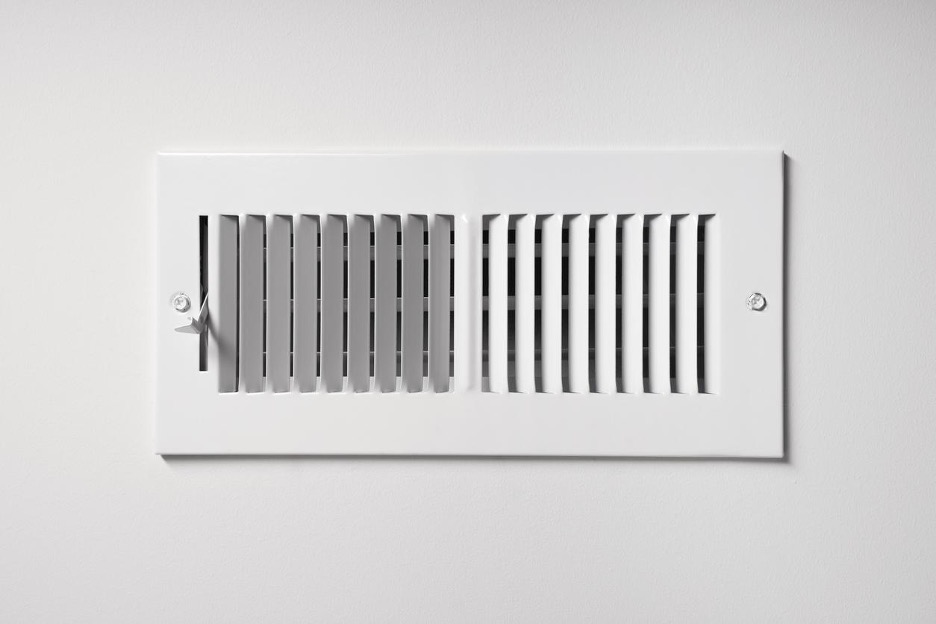There are several rooms in your house that you rarely use. So, you close their air vents. After all, this reduces the square footage that’s heated or cooled, redirects the air to areas you’re using, and saves money. Right?
Unfortunately, it’s a common misconception that closing vents in areas you’re not using is economical. In fact, it can actually raise your energy bills and damage your HVAC system. Learn what really happens when you close air vents and what you can do instead.
Why You Can’t Save Money by Closing Vents
The ductwork in your HVAC system was specifically sized for your home. This ensures that the amount of air entering equals the amount of air leaving. This isn’t based on the number of open vents. If you close vents, it changes this balance. Instead of making your system work less, the pressure (called static pressure) on your air ducts increases. The air now has fewer places to go. Your blower can only supply a specific amount of air against a certain amount of pressure. This can cause problems with the below.
- Permanent split capacitor (PSC)
This blower cannot withstand the extra pressure from the closed vents, and its airflow will dwindle. When this happens, it will take longer to cool or heat your house. This additional pressure on the PSC can also lead to a frozen evaporator coil or a cracked heat exchanger that leaks carbon monoxide.
- Electronically commutated motor (ECM)
This blower can withstand the extra pressure by overexerting itself. However, this struggle will cause your energy bill to spike.
- Mold growth
Condensation and mold form when cold air and warm air combine. If there are leaks in your ductwork in the summer, for instance, humid attic air and cool air-conditioned air will form condensation, leading to mold.
- Duct leakage
The typical home loses about 20% to 30% of air through small ductwork leaks. Add pressure from closed vents to the equation, and small leaks could turn into big ones. Then you’ll basically be paying to heat or cool your attic or crawlspace.
Do Closed Vents Help Other Areas of the House?
No. Cold areas draw heat from warm areas. If vents are closed in one or more rooms, heat will be pulled out of the warm rooms into the unheated ones. This will make your furnace cycle on and off too frequently to compensate, making your home uncomfortable and taking its toll on your wallet.
Should I Close Basement Vents?
If you have a finished basement, don’t close these vents. Your HVAC system was designed to heat and cool this area, as well. If you close them, it will have the same adverse effects as closing vents in the rest of your house.
What If I Have a Two-Story House?
If you feel the need to close your vents to warm or cool your two-story house’s lower level, it may indicate a system glitch. A properly functioning HVAC will keep the entire house comfortable.
Why Can My Vents Close If I’m Not Supposed to Close Them?
Many homes have HVAC vents with fins that can be opened and closed with a sliding control. However, these fins should only be used to guide airflow in a certain direction, rather than completely block airflow. If you do this, close vents only 50% to 74% of the way. This will allow air to keep flowing through your house, as well as lowering your energy costs.
Other Ways to Save Money On Heating and Cooling
If closing vents take its toll on your HVAC and your energy bills, what else can be done? Luckily, there are several effective alternatives:
- Keep your air conditioner lower at night.
- Set your thermostat at 78 degrees in the summer and 68 degrees in the winter.
- Still want to only cool part of your house? Consider getting a window or portable air conditioner.
- If you only want to heat a room or two, try space heaters. They come in various sizes to suit your needs and are more energy efficient than central heat.
- Install ceiling fans. Did you know that ceiling fans can even be used in winter to help keep you warm? In the summertime, set your fans to rotate counterclockwise. This pushes cool air down. In the winter, set it to rotate clockwise. This pushes warm air down.
- Get a programmable thermostat.
Instead of closing vents, you can get a programmable thermostat. You can program it to automatically regulate temperatures when you wake up, during the day, when you’re away from home, and when you’re sleeping. And the best part? According to the EPA, homeowners can shave 10% to 30% off their cooling and heating costs by installing a programmable thermostat.
Contact Us
At Progressive Air Systems, we strive to provide you with a comfortable, energy-efficient home that helps you save money on your heating and cooling bills. Call us today and we’ll help you get the most out of your HVAC system!

